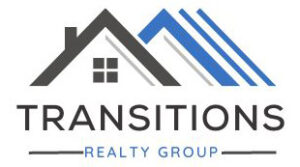Are you in the market for your first home? If so, congratulations! Buying a home can be an exciting milestone in your life. But before you start the house hunt, it’s important to do your research and arm yourself with the right information. This first-time homebuyer’s guide will teach you everything you need to know about the process, from finding the perfect home to securing a mortgage.

Credit, DTI, and the 28/36 Rule of Real Estate
Credit is crucial when buying a house because your credit score tells lenders how likely you are to repay your mortgage loan. Lenders need to see a score of 620 or higher, and they want to see no outstanding balances or derogatory marks. If you have any of these, rectify them before applying for your home mortgage loan.
Your debt-to-income ratio (DTI) is the percentage of your monthly income that goes toward debt payments. It’s important because it shows lenders how much debt you can handle relative to your income. You can figure out your DTI by adding up all your monthly debt payments and dividing them by your gross monthly income. Most lenders prefer a DTI of 36% or less.
The 28/36 rule is a guideline that says your total monthly housing expenses (mortgage, property taxes, insurance, HOA dues) should not exceed 28% of your gross monthly income. Your total debt load (housing expenses plus all other debts, like car payments and credit card bills) should not exceed 36% of your gross monthly income. This rule ensures you’re not spending too much on housing and not taking on more debt than you can handle.
The Money You'll Need to Buy a Home
An earnest money deposit is a deposit made by a buyer to show that they are serious about buying a home. The deposit is typically 1-3% of the home’s purchase price and is paid at the time of the offer. The earnest money deposit is held in escrow by the title company or real estate agent and is applied to the home’s purchase price at closing.
The down payment is the portion of the purchase price that is paid in cash, typically 20% of the purchase price. It is important to note that you can buy a home with less than 20% down, but you will be required to pay private mortgage insurance (PMI). PMI is insurance that protects the lender if you default on your loan. Closing costs are cash-out-of-pocket expenses associated with buying a home and typically range from 2-5% of the purchase price.
Moving expenses can add up quickly, so it is essential to have savings set aside to cover these costs. In addition to boxes and trucks, you will also need to budget for utility deposits, furnishings for your new home, and other incidentals.
Being house poor occurs when your monthly housing expenses consume a large portion of your income, leaving you with little money for other expenses. It’s important to avoid being house poor because it can lead to financial problems down the road.
Get Pre-Approved for Your Home Mortgage Loan
When you’re in the market for a new home, one of the first steps you’ll take is getting pre-approved for a mortgage loan. Pre-approval gives you a realistic idea of how much you can borrow and what your monthly payments might look like.
There’s a difference between being pre-qualified for a home mortgage loan and pre-approved, though. To be pre-qualified, a lender will look at your credit score and debts to give you an idea of how much you could probably borrow. Getting pre-approved is a more detailed process. The lender will not only review your credit history, but they’ll also verify your employment and income. They may even do a preliminary review of the property you’re interested in purchasing.
Once pre-approved, you’ll know exactly how much money you have to work with, making the home buying process much easier.
Hire the Best Agent
Purchasing a home is one of the most significant decisions you’ll ever make. It’s important to have an experienced and knowledgeable real estate agent by your side to help guide you through the process.
A buyer’s agent represents the buyers in a real estate transaction. They work to find properties that fit their clients’ needs and budgets and then negotiate on their behalf to get the best possible price and terms.
They also handle all the paperwork and coordinate with other professionals involved in the transaction, such as lenders and home inspectors.
When you’re ready to start looking for a home, it’s crucial to take the time to find an agent that you trust, and that has your best interests at heart.
You can ask family and friends for recommendations or look for agents that have been rated highly by past clients. Once you’ve found a few agents you’re interested in working with, be sure to interview them to better understand their experience and style.
Choosing the right real estate agent is an important decision, but with a bit of research, you can find someone who will help make your dream of owning a home a reality.
Conclusion
With the help of a qualified real estate agent and some preparation, you can find the right house at the best price and easily sail through your transaction.
Make sure you have a healthy credit score and DTI ratio and fit within the 28/36 rule. Get your finances in order to pay your earnest money deposit, down payment, closing costs, moving expenses, and emergency fund. Get pre-approved for your home mortgage loan and start looking for houses.
Reach out to your local real estate agent today to discover more about the home-buying process.

